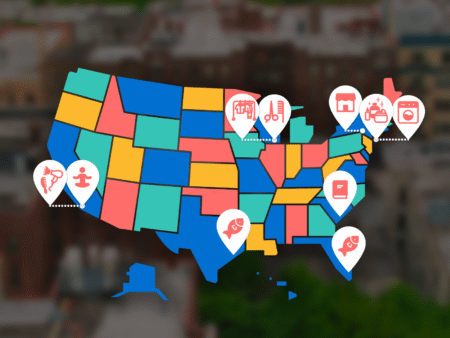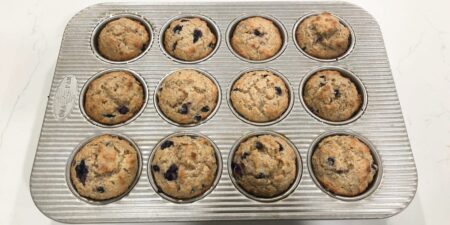X
Bluesky
Copy link
Impact Link
Save
Saved
Read in app
subscribers. Become an Insider
and start reading now.
Have an account? .
- I made Gordon Ramsay’s quick and easy cacio e pepe pasta.
- The dish only needs six basic ingredients, including bucatini, Parmesan, and peppercorns.
- The delicious pasta was a crowd-pleaser and tasted like it came from a restaurant.
There once was a time when the quality of my pasta dinner was determined by the jarred marinara sauce I bought at the supermarket.
But as I’ve worked to improve my skills in the kitchen, I’ve learned that you can whip up an incredible pasta sauce from scratch in a flash.
Gordon Ramsay’s quick and easy cacio e pepe is perfect proof of this. It delivers an impressive dinner in under 30 minutes. Here’s how to make it.
Gordon Ramsay’s cacio e pepe is featured in his cookbook “Quick and Delicious.”
Ramsay is a pro when it comes to quick pasta dishes. My family loves his 15-minute Bolognese, and he whips up this 10-minute recipe that features turkey and leek sauce every week.
He also has an entire cookbook dedicated to recipes that take 30 minutes or less, and it’s packed with plenty of pasta.
In his “Quick and Delicious” cookbook, Ramsay asserts that “quick food doesn’t mean bland and one-dimensional.”
“Producing restaurant-quality meals in half an hour can be a challenge,” he writes. “But there are ways around this if you know how: choose the right ingredients, marry them with the right combination of spices and sauces, use the right cooking method, and you can produce incredibly tasty meals that tick all the boxes.”
Ramsay’s cacio e pepe only needs six basic ingredients.
To make a serving of Ramsay’s cacio e pepe for two, you’ll need:
- 60 grams (about ½ cup) Parmesan cheese, finely grated
- 200 grams bucatini (I used half of a 1-pound box)
- 100 grams (about 7 tablespoons) butter
- 20 grams (about 1 ½ tablespoons) pecorino cheese
- 1 ½ teaspoons black peppercorns
- Sea salt for seasoning
After preheating my oven to 390 degrees Fahrenheit, I prepped my ingredients.
I grated the Parmesan and pecorino cheeses and lined a baking tray to make the Parmesan crisps.
Ramsay says to use “baking paper” (known as parchment paper in the US), but I only had aluminum foil, which still did the trick.
I used half of my grated Parmesan cheese for the Parmesan crisps.
I formed four equal piles of Parmesan cheese on the baking tray, using a measuring cup to help ensure the piles were equal.
Ramsay says to place the tray on a high shelf in the oven for 10 to 12 minutes. You’ll know the crisps are ready when the Parmesan has turned golden brown (mine took 10 minutes).
While my Parmesan crisps baked in the oven, I toasted my peppercorns.
I tossed the peppercorns in a dry frying pan over medium heat for two minutes, stirring occasionally.
Ramsay says you’ll know the peppercorns are ready when they become aromatic.
The next step is to coarsely grind the toasted peppercorns.
I don’t have a mortar and pestle, which Ramsay recommends, so I just threw the toasted peppercorns in a Ziploc bag and used my rolling pin. It worked like a charm!
Then I used one of Ramsay’s tricks to cook my pasta quickly.
Ramsay recommends boiling water in a kettle and then half-filling your saucepan, allowing it to return to a boil. This trick — which Ramsay frequently uses in his quick pasta recipes — allows you to save time instead of waiting for the saucepan to come to a boil with water straight from the tap.
For this step, Ramsay says it’s important to “add just enough water to cover the pasta so that the water will become as starchy as possible.”
I have a small kettle and needed a bit more water to cover the pasta, so I’d recommend filling it up a second time for backup!
Once the water came to a boil, I threw in my pasta.
Ramsay says to cook the pasta for 10 minutes or until the bucatini is al dente.
While the pasta was cooking, I got started on the sauce.
I placed a large sauté pan over medium heat and added the butter in knobs to help it melt quickly.
Once the butter melted, I added the toasted peppercorns.
When the butter began to foam, it was time to add what Ramsay calls the “magic ingredient.”
“Cacio e pepe translates as ‘cheese and pepper,’ and that’s essentially all that goes into this sauce,” he writes in the recipe description. “The magic ingredient that binds them together is the pasta cooking water. It is full of starch, which emulsifies with the butter and helps the sauce cling to the pasta.”
I added a ladleful of the pasta water to the sauce and brought it to a boil, swirling the pan to help emulsify the sauce.
Then I used tongs to transfer the pasta to the sauté pan.
I added a second ladleful of pasta water to the pan, as well as the remaining Parmesan cheese.
Per Ramsay’s instructions, I stirred everything together to coat the bucatini and added another splash of pasta water. Then I added the pecorino cheese and sea salt before mixing everything together.
After crumbling the Parmesan crisps right on top, dinner was served!
Ramsay promised that this would be a “restaurant-quality meal,” and he absolutely delivered. The cacio e pepe sauce was luscious and silky, infusing the chewy bucatini noodles with its satisfying hit of salty cheesiness. The Parmesan crisps were also a great addition, elevating the dish while adding some extra crunch to the overall flavor.
This dish is easy but impressive. I recently whipped it up for a girls’ night dinner, earning rave reviews. It’s the perfect go-to when you need a quick but exciting recipe — no store-bought sauce required.
Read the full article here
















